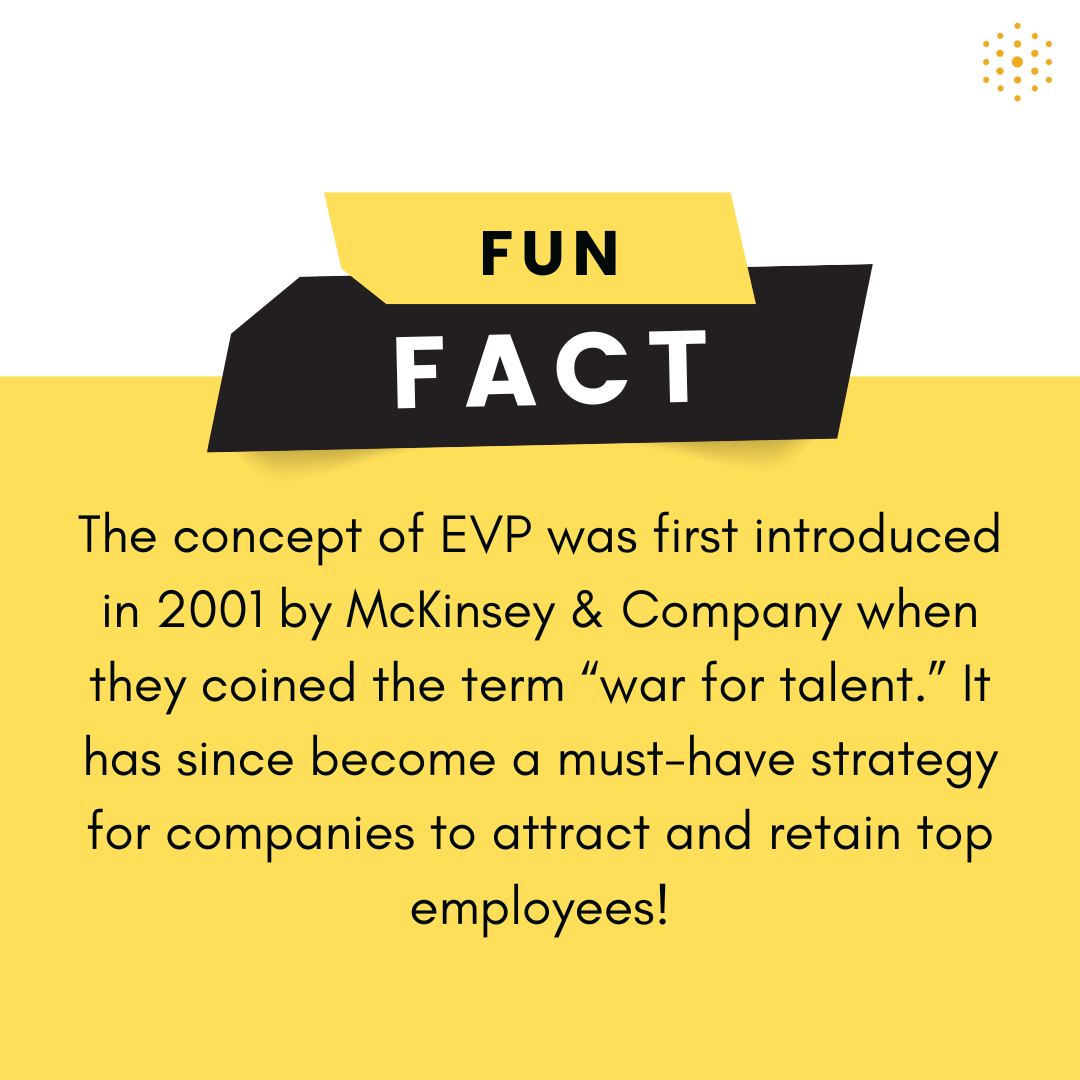A strong Employee Value Proposition (EVP) can lower employee turnover by 69%, making it a crucial factor in your job satisfaction and long-term career growth.
But what exactly is EVP?
Employee Value Proposition (EVP) is everything you get in exchange for your time, skills, and dedication to a company.
This includes your salary, benefits, work culture, career growth opportunities, and more.
Understanding your EVP isn’t just for HR - it’s crucial for employees, because knowing what your company offers (and what it lacks) helps you:
- Negotiate a better deal when switching jobs or asking for a raise
- Find a company that aligns with your values and long-term career goals
- Make informed career decisions that lead to more satisfaction and success
Here are 7 key elements of an EVP you should assess before accepting a job or deciding to stay in your current role.
1. Compensation: Beyond Salary
Your paycheck is important, but it’s only part of the picture. A strong EVP includes competitive base pay, performance bonuses, stock options, and salary growth opportunities.
Questions to Ask:
- Is my salary competitive for my role and experience level?
- Are there annual raises or performance-based bonuses?
- Does the company offer profit-sharing or stock options?
Also Read: How to negotiate your salary during interviews?
2. Benefits That Truly Matter
Health insurance, retirement plans, paid time off - these perks can make or break a job offer. But the best benefits go beyond the basics and cater to employees’ holistic well-being.
Key Benefits to Look For:
- Health & Wellness: Medical, dental, vision insurance, mental health support, gym reimbursements
- Financial Security: 401(k) with employer matching, stock options, student loan assistance
- Time Off & Flexibility: Generous PTO, parental leave, remote/hybrid work options
Pro Tip: A company’s benefits should align with your lifestyle needs. If you value remote work or mental health support, make sure the EVP reflects that before signing the contract.
Also Read: How to find a job you love?
3. Career Growth and Learning Opportunities
A strong EVP invests in your future with learning, mentorship, and career development.
Key Growth Factors:
- Training programs and tuition reimbursement
- Clear promotion paths and career progression plans
- Mentorship, coaching, and leadership development opportunities
Ask Yourself:
- Does the company invest in employee development?
- Are there mentorship or leadership training programs?
- Do employees get access to learning tools, courses, or certifications?
Also Read: How to use LinkedIn to find a job?

4. Work-Life Balance and Flexibility
Burnout is real, and work-life balance is now a top priority for employees. A good EVP ensures you have the flexibility and balance to thrive both professionally and personally.
Things to Consider:
- Is there a culture of overwork, or do employees respect personal time?
- Are flexible hours, remote work, or hybrid models available?
- Does leadership encourage healthy work-life balance?
Also Read: How to get a job in 7 easy steps?
5. Company Culture and Values
The best pay and perks won’t matter if you’re miserable at work. Company culture includes leadership style, work environment, diversity and inclusion efforts, and team dynamics.
Red Flags to Watch For:
- High employee turnover and low morale
- Leadership that doesn’t prioritize diversity, equity, and inclusion (DEI)
- Lack of transparency in company communication
Pro Tip: Before accepting an offer, check Glassdoor reviews and LinkedIn connections to get an honest view of the company culture from current and former employees.
6. Recognition and Rewards
Feeling valued at work isn’t just about money, it’s about recognition.
A strong EVP ensures employees feel appreciated for their contributions through awards, peer recognition, and leadership acknowledgment.
Examples of Good Recognition Programs:
- Monthly or quarterly awards for outstanding performance
- Peer-to-peer recognition programs
- Regular feedback and performance appraisals
Also Read: How to ask for a raise at work?
7. Job Security and Company Stability
A high salary means little if your company is constantly laying off employees or struggling financially. Understanding your company’s financial health and stability can help you avoid job insecurity.
What to Check:
- How long has the company been in business?
- Have they recently announced layoffs or financial struggles?
- Are they growing or stagnating?
Also Read: When should you leave your job?
Making the Most of Your EVP
Now that you understand the key elements of an EVP, what’s next? Here’s how to apply this knowledge:
- Evaluate Your Current Job: Does your EVP align with your needs?
- Negotiate Wisely: If certain elements are missing, use this framework to negotiate better perks or salary.
- Seek Better Opportunities: If your current employer doesn’t provide what you need, it might be time for a change.
At Hiration, we help job seekers make better career moves with tools like our Resume Builder, Mock Interview, LinkedIn Optimizer, and more.
Whether you’re negotiating a better EVP or looking for a company that truly values you, our AI-powered career tools help put your best foot forward.



